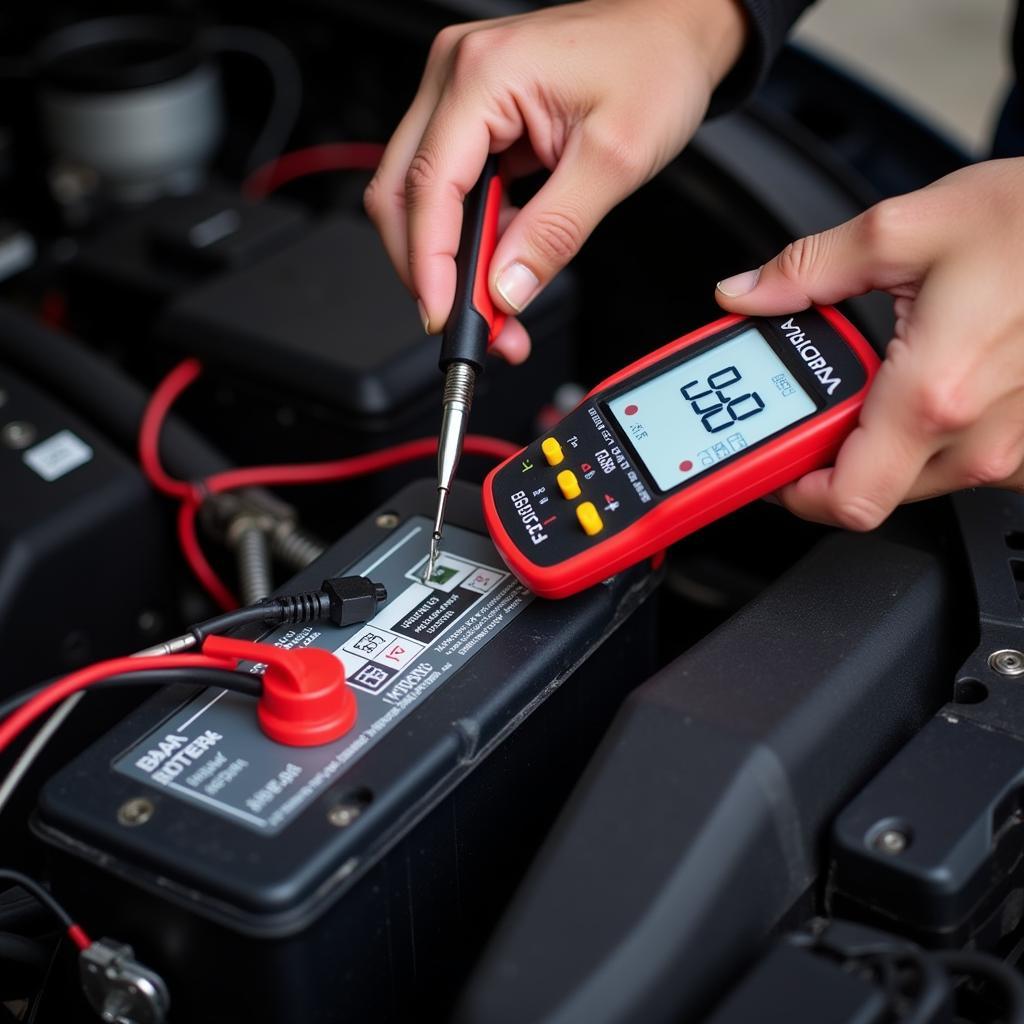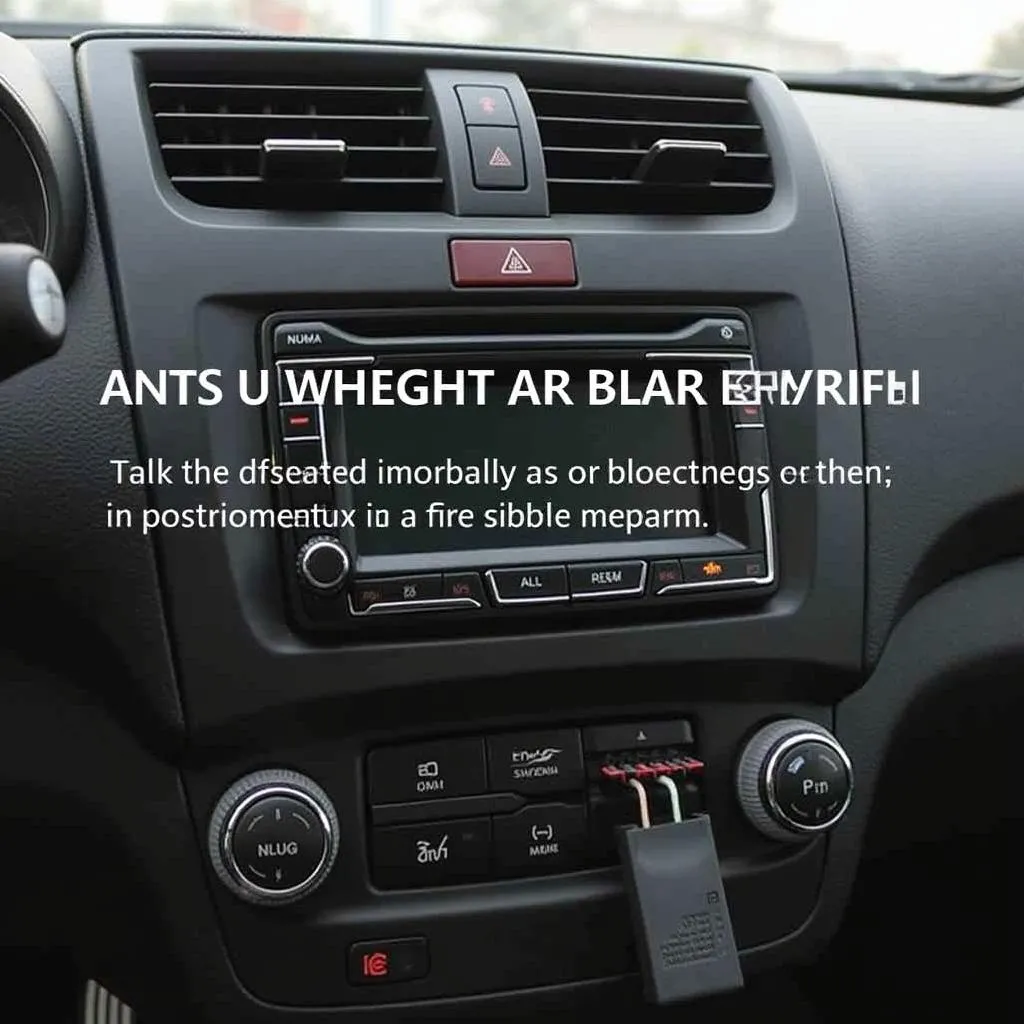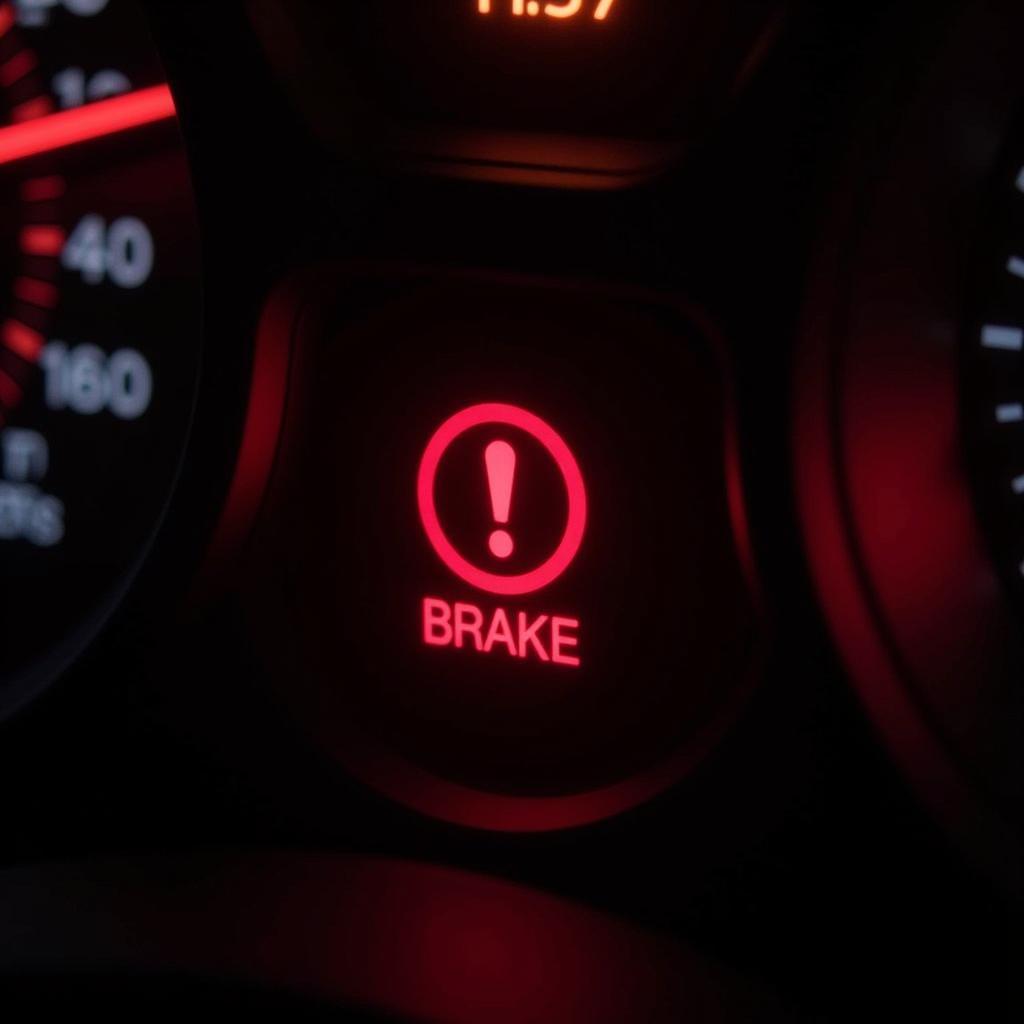Car battery problems in winter are a common occurrence, leaving drivers stranded in the cold. Understanding why cold weather affects your battery, how to diagnose the issue, and implement preventative measures can save you time, money, and frustration. This guide will equip you with the knowledge to tackle car battery problems in winter effectively.
Why Winter Wrecks Havoc on Car Batteries
Cold temperatures significantly reduce a car battery’s cranking power, the ability to deliver the high current needed to start the engine. The chemical reactions inside the battery slow down in the cold, reducing the available current. Furthermore, engine oil thickens in low temperatures, requiring more power from the battery to turn the engine over. These combined factors put a heavy strain on your car battery, making it more susceptible to failure, especially if it’s already nearing the end of its lifespan.
Identifying a Winter Car Battery Problem
Several signs indicate a failing car battery in winter. Slow engine cranking is a primary symptom. If the engine turns over sluggishly or struggles to start, it could be due to a weak battery. Dim headlights, especially when idling, also point towards a potential battery problem. Other indicators include clicking sounds when turning the key, a flickering dashboard, and malfunctioning interior lights. If your car battery dies in cold weather even though it’s relatively new, consider checking for parasitic drains, which are electrical devices that continue to draw power even when the car is off. This leads to automotive battery drain and can leave you stranded.
Similar to truck battery dies in cold weather, cars also experience this issue frequently in winter.
Diagnosing Your Car Battery
Testing your car battery is crucial for accurate diagnosis. A multimeter can measure the battery’s voltage. A fully charged battery should read around 12.6 volts. A lower reading indicates a problem. You can also take your car to a local auto parts store for a free battery test. They use specialized equipment to check the battery’s cranking amps and overall health. This helps determine if the battery needs replacing or if another issue is at play.
 Testing a Car Battery with a Multimeter
Testing a Car Battery with a Multimeter
Solutions and Preventative Measures for Car Battery Problem in Winter
Several solutions and preventative measures can help you avoid car battery problems in winter. Keeping your battery clean and free of corrosion is essential. Corrosion on the battery terminals can impede the flow of current. Cleaning the terminals with a wire brush and applying a protective coating can prevent corrosion. Parking your car in a garage or carport can shield the battery from extreme cold. If you have a remote car starter, use it sparingly, as it can drain the battery, particularly in cold weather. As with remote car starter draining battery, excessive use can lead to unexpected starting issues. Regular battery testing and replacement every 3-5 years can also prevent unexpected failures.
How can I prevent my car battery from dying in winter?
Keep your battery terminals clean, park in a garage when possible, limit remote starter use, and get your battery tested regularly.
What are the signs of a failing car battery in winter?
Slow engine cranking, dim headlights, clicking sounds when turning the key, and a flickering dashboard are common signs of a failing car battery in winter. Just like diagnosing a dodge ram 1500 battery problems, checking these signs is essential.
Should I disconnect my car battery in the winter?
Disconnecting your battery can prevent parasitic drains, but it can also reset electronic systems. Consult your owner’s manual before disconnecting your battery. Understanding how to diagnose battery drain in car can prevent unnecessary disconnections.
“Winter weather is brutal on car batteries. Regular maintenance and proactive measures are key to avoiding breakdowns,” says John Smith, Senior Automotive Technician at Smith Auto Repair.
Is it normal for a car battery to die in cold weather?
While cold weather reduces battery performance, a good battery should still start your car. If your battery consistently dies in the cold, it likely needs replacing. Investigating automotive battery drain can identify underlying causes.
“Investing in a good quality battery and keeping it properly maintained can save you a lot of headaches in the winter,” adds John Smith.
In conclusion, car battery problems in winter are a common but preventable issue. By understanding how cold weather affects your battery, recognizing the signs of a failing battery, and implementing preventative measures, you can keep your car running smoothly throughout the winter season. Remember to regularly test your battery and consider replacing it every 3-5 years to avoid unexpected car battery problem in winter.
FAQ
- How long does a car battery last in cold weather? A well-maintained battery should last 3-5 years, regardless of the weather.
- Can a car battery freeze? Yes, a discharged battery can freeze in extremely cold temperatures.
- How do I jump-start a car with a dead battery? Connect the jumper cables correctly, ensuring positive to positive and negative to negative.
- What type of car battery is best for cold weather? Look for batteries with a high Cold Cranking Amps (CCA) rating.
- Will a trickle charger help my car battery in winter? A trickle charger can help maintain the battery’s charge during extended periods of inactivity.
- Can extreme cold damage a car battery? Yes, extreme cold can reduce battery capacity and lifespan.
- Should I warm up my car in the winter? Modern cars don’t require long warm-up periods. It’s more beneficial to drive gently for the first few minutes to warm up the engine and other components.


